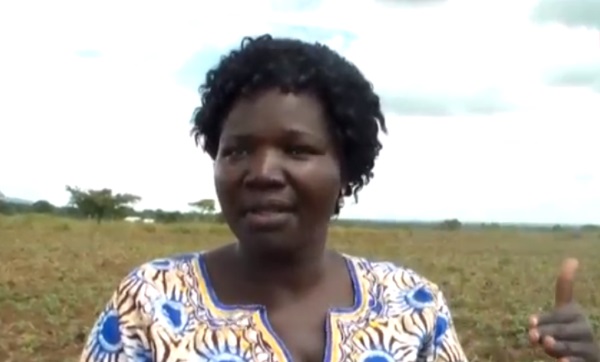Farming in Uganda’s dry area is a challenge with many subsistence farmers registering losses due to poor harvests. Karamoja neighboring areas in Teso are semi-arid supporting cotton, all crops, and a few crops. The production of these crops can be improved if new innovations and research are invested in. The National Semi-arid Research Institute NASARRI in Serere breeds seed varieties that are resistant to droughts. According to Beatrice Sadina, a self-fertility scientist at NASARRI, new research shows that due to prolonged droughts farmers need to start intercrop and intra-low cropping since the soil PH in the region has changed. “The aspects of food security have to be addressed and that’s why we are intercropping these cowpeas and other legumes to see that we have food at home as we wait for the cotton to grow.” Said, Beatrice Sadina – Soil Fertility Scientist, NASARRI.
The soil PH stands at 5.5 while the organic matter has reduced to below 3%. Crop nutrients are also held up due to high moisture content. “When we look at soil organic matter, that level has reduced most of them are below 3% and yet that is critical, it should be beyond 3% for us to say that the soils are still fertile.” The intercropping technique will be applicable in all crops including groundnuts, soya, Simsim, sunflower, dry land legumes and dryland cereals. Here, researchers say that the method will solve the problem of food insecurity. “Putting up a number of crops together you really reduce the risk, you increase the possibility of increasing something.” Said, Dr. Orawo Martin – Program Leader, Cotton – NASARRI. “This is what we want for Uganda. If you are going to help our farmers to fight disease if you are going to use these scientists we are now calling them today’s warriors. If we are going to use the warriors we have to help our economy, how wouldn’t I be excited?” Said, Jennifer Muwuuza – Assistant Commissioner, Ministry of STI. Organic matter will be promoted to reduce the use of synthetic fertilizer. Intercropping will help farmers have food at home especially those who have been relying on cotton and sugarcane and those who have been practicing monoculture.

